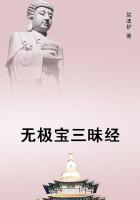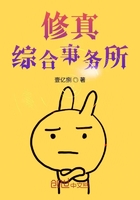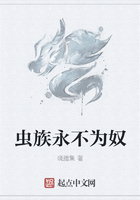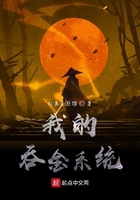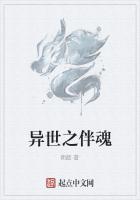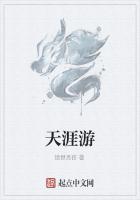THE GREAT FRENCH REVOLUTION PROCLAIMS
THE PRINCIPLES OF LIBERTY, FRATERNITY AND EQUALITY UNTO ALL THE PEOPLE OF THE EARTH BEFORE we talk about a revolution it is just as well that we explain just what this word means. In the terms of a great Russian writer (and Russians ought to know what they are talking about in this field) a revolution is "a swift overthrow, in a few years, of institutions which have taken centuries to root in the soil, and seem so fixed and immovable that even the most ardent reformers hardly dare to attack them in their writings. It is the fall, the crumbling away in a brief period, of all that up to that time has composed the essence of social, religious, political and economic life in a nation."
Such a revolution took place in France in the eighteenth century when the old civilisation of the country had grown stale. The king in the days of Louis XIV had become EVERYTHING and was the state. The Nobility, formerly the civil servant of the federal state, found itself without any duties and became a social ornament of the royal court.
This French state of the eighteenth century, however, cost incredible sums of money. This money had to be produced in the form of taxes. Unfortunately the kings of France had not been strong enough to force the nobility and the clergy to pay their share of these taxes. Hence the taxes were paid entirely by the agricultural population. But the peasants living in dreary hovels, no longer in intimate contact with their former landlords, but victims of cruel and incompetent land agents, were going from bad to worse. Why should they work and exert themselves? Increased returns upon their land merely meant more taxes and nothing for themselves and therefore they neglected their fields as much as they dared.
Hence we have a king who wanders in empty splendour through the vast halls of his palaces, habitually followed by hungry office seekers, all of whom live upon the revenue obtained from peasants who are no better than the beasts of the fields. It is not a pleasant picture, but it is not exaggerated.
There was, however, another side to the so-called "Ancien Regime" which we must keep in mind.
A wealthy middle class, closely connected with the nobility (by the usual process of the rich banker's daughter marrying the poor baron's son) and a court composed of all the most entertaining people of France, had brought the polite art of graceful living to its highest development. As the best brains of the country were not allowed to occupy themselves with questions of political economics, they spent their idle hours upon the discussion of abstract ideas.
As fashions in modes of thought and personal behaviour are quite as likely to run to extremes as fashion in dress, it was natural that the most artificial society of that day should take a tremendous interest in what they considered "the ****** life." The king and the queen, the absolute and unquestioned proprietors of this country galled France, together with all its colonies and dependencies, went to live in funny little country houses all dressed up as milk-maids and stable-boys and played at being shepherds in a happy vale of ancient Hellas. Around them, their courtiers danced attendance, their court-musicians composed lovely minuets, their court barbers devised more and more elaborate and costly headgear, until from sheer boredom and lack of real jobs, this whole artificial world of Versailles (the great show place which Louis XIV had built far away from his noisy and restless city) talked of nothing but those subjects which were furthest removed from their own lives, just as a man who is starving will talk of nothing except food.
When Voltaire, the courageous old philosopher, playwright, historian and novelist, and the great enemy of all religious and political tyranny, began to throw his bombs of criticism at everything connected with the Established Order of Things, the whole French world applauded him and his theatrical pieces played to standing room only. When Jean Jacques Rousseau waxed sentimental about primitive man and gave his contemporaries delightful descriptions of the happiness of the original inhabitants of this planet, (about whom he knew as little as he did about the children, upon whose education he was the recognised authority,) all France read his "Social Contract" and this society in which the king and the state were one, wept bitter tears when they heard Rousseau's appeal for a return to the blessed days when the real sovereignty had lain in the hands of the people and when the king had been merely the servant of his people.
When Montesquieu published his "Persian Letters" in which two distinguished Persian travellers turn the whole existing society of France topsy-turvy and poke fun at everything from the king down to the lowest of his six hundred pastry cooks, the book immediately went through four editions and assured the writer thousands of readers for his famous discussion of the "Spirit of the Laws" in which the noble Baron compared the excellent English system with the backward system of France and advocated instead of an absolute monarchy the establishment of a state in which the Executive, the Legislative and the Judicial powers should be in separate hands and should work independently of each other.
When Lebreton, the Parisian book-seller, announced that Messieurs Diderot, d'Alembert, Turgot and a score of other distinguished writers were going to publish an Encyclopaedia which was to contain "all the new ideas and the new science and the new knowledge," the response from the side of the public was most satisfactory, and when after twenty-two years the last of the twenty-eight volumes had been finished, the somewhat belated interference of the police could not repress the enthusiasm with which French society received this most important but very dangerous contribution to the discussions of the day.



